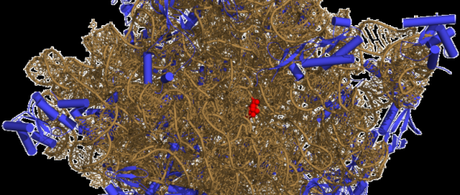
Mutation is the bread and butter of evolution. It provides the "raw material" which allows adaptation to happen. Often, mutations are just changes to existing genes. Even when they produce a "new" gene it's typically just a duplicate of another gene that was modified. So how often do brand spanking new genes emerge?
Occasionally might be the answer. These " de novo " genes have been documented in many species. In humans alone we've found upwards of 64 such new genes. But 64 is not a significant portion of the total number of human genes. Does this suggest that new genes are a relatively uncomment, unimportant aspect of evolution?
To try and get a more accurate idea of how often new genes emerge a group of researchers in Spain examined the human transcriptome. This might rhyme with genome, but it isn't the same thing. Rather, this represents the sum total of all the genetic information " copied " out of the genome, ready to tell the cell to make something useful. They also examined the transcriptomes of chimps, macaques, and mice. Since the latter two diverged a long time ago, if there was a similarity in their transcriptome then that would suggest that is what the ancestral transcriptome of human and chimps looked like. Any differences in the human or chimp one would thus be a new development. Possibly representing new genes.
And indeed, they found more than 5,000 new bits of information in the human and chimp transcriptome. When they examined the DNA which created this information, they found upwards of 2,000 new genes were responsible. Quite a lot more than 64. This would suggest that these sorts of brand new genes are a significant evolutionary force (although when it comes to overall evolutionary change, still in the minority).
But beyond that these new genes are quite fascinating in their own right. For instance, they were especially common in the testicles. Why? I have no clue, and the researchers can't shed much light on the subject either. Many of them showed strong evidence of purifying selection (selection which removes harmful mutations), suggesting they had become important to human function. Purifying selection doesn't affect useless genes. They also tend to contain a bit less "information" than 'regular' genes; which is what you'd expect if they're being made sort-of from scratch.
Now that all the boring genetic stuff is over with, perhaps you can see the significant of this finding. Not only are new genes quite common, but they can become crucial parts of our genome. Further research on the subject should be fascinating.
Reference
Ruiz-Orera, J., Hernandez-Rodriguez, J., Chiva, C., Sabidó, E., Kondova, I., Bontrop, R., ... & Albà, M. (2015). Origins of de novo genes in human and chimpanzee. arXiv preprint arXiv:1507.07744.

